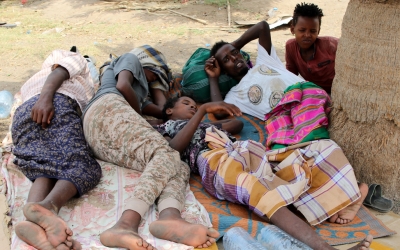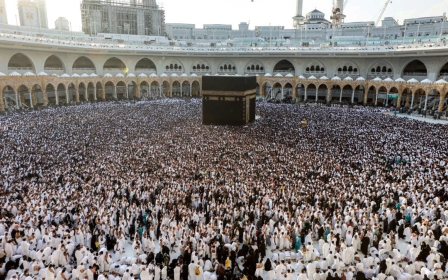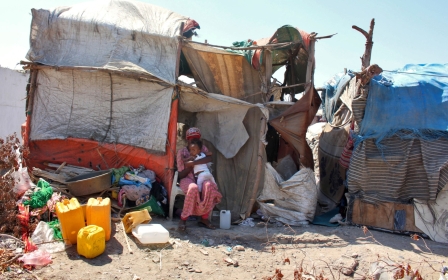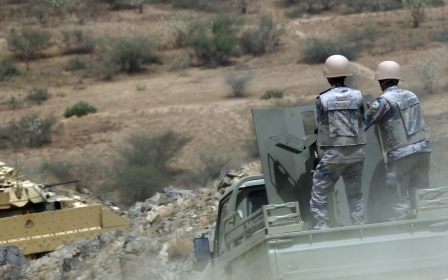Saudi Arabia 'continuing mass killing' of Ethiopians and Yemenis at border
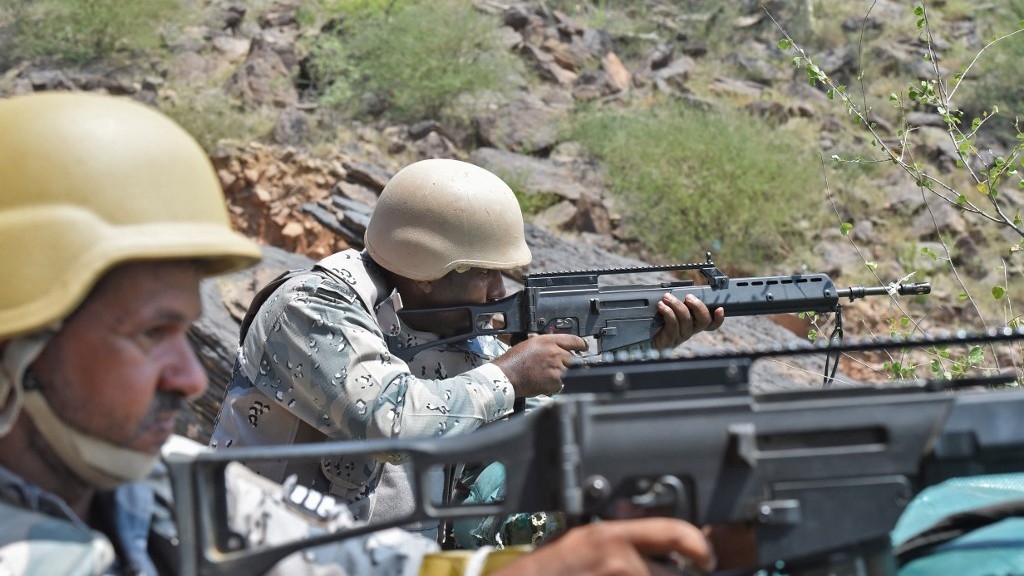
Saudi Arabia continues to kill Ethiopians and Yemenis at its border with impunity, despite international reports documenting the abuses, a new report has found.
According to the Mixed Migration Centre (MMC), Saudi border authorities have continued to fire indiscriminately at Ethiopian and Yemeni migrants attempting to cross the border irregularly from Yemen in 2023 and 2024.
Human Rights Watch has labelled the killing as possible crimes against humanity, but MMC says that international inaction continues to enable Saudi Arabia to commit the violations with impunity.
Middle East Eye revealed last year how Ethiopians who fled the conflict in Tigray were met with live fire and forced to bury the dead in mass graves along the Saudi-Yemen border.
Prior to the release of an HRW report, MEE also reported that Yemenis were braving violence at the border in pursuit of work in Saudi Arabia.
New MEE newsletter: Jerusalem Dispatch
Sign up to get the latest insights and analysis on Israel-Palestine, alongside Turkey Unpacked and other MEE newsletters
In its report, published on Wednesday, MMC said that Saudi border police arrest large groups of migrants when they fail to deter them with rounds of shelling.
They are then taken to Saudi jails, where they face beatings, torture and sexual abuse.
MMC added that Saudi guards attempt to scare migrants by using loudspeakers, automated firing systems and heavy surveillance.
Over 400 killed in three months
Across three months in 2022, MMC found evidence of 430 killings and 650 injuries caused by Saudi border guards.
Shortly after the 2022 MMC report, a UN communication accused Saudi authorities of violating migrants’ human rights, highlighting that girls as young as 13 were reportedly raped by Saudi security forces.
The UN letter included a report of a clandestine cemetery in Al Khals in Saudi Arabia, where 10,000 bodies of migrants were buried, believed to have been killed in Yemen's border area of Ar Raqw.
The updated 2024 report by MMC said that international indifference towards the Saudi-led mass shootings has allowed the crimes to continue.
Despite a brief storm of international outrage in 2023, MMC said that 10 months on, governments - including the US and EU countries - and UN agencies are silent about the scale of border killings.
Meanwhile, Saudi Arabia has made no effort to conduct an official investigation, MMC said.
"So little has been done to censure Saudi Arabia, which surely can find an alternative, less cruel way of deterring the poorest of irregular migrants whose only offense is desperately wanting to be economically productive in a hugely wealthy migrant-dependent economy," the report said.
When reports about the border killings emerged last year, the US called on Saudi Arabia to identify which members of its security forces are alleged to have killed Ethiopian migrants, the Washington Post reported.
The Yemeni border has become a major transit point for people from the Horn of Africa attempting to cross into Saudi Arabia. Many refugees and migrants rely on networks of traffickers to help them travel along the route, leaving them vulnerable to violence.
The majority of people attempting to cross the border are Ethiopians, many of whom are looking to escape civil conflict in their own country. A 2021 report from the International Organization for Migration (IOM) found that more than 800,000 Ethiopians have fled the country in search of employment and economic opportunities.
Middle East Eye delivers independent and unrivalled coverage and analysis of the Middle East, North Africa and beyond. To learn more about republishing this content and the associated fees, please fill out this form. More about MEE can be found here.


